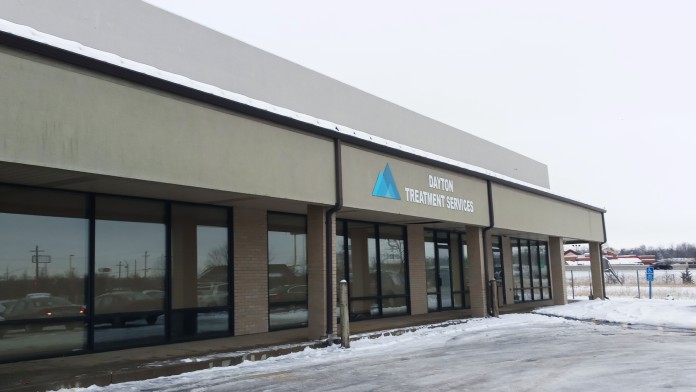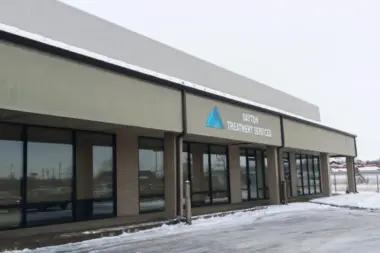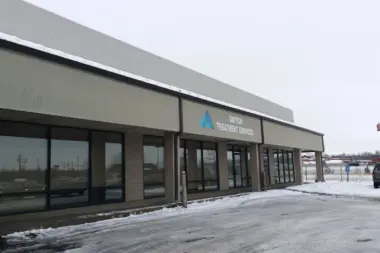This place could careless about there patient's, I've know people that have been dirty for over a year including my self. They opened in Jan 2018 and I've been there since March 2018 and have been dirty of fent, and opaites the entire time. They call this "HARM REDUCTION" SO ...
About Dayton Treatment Services
This convenient location reflects their focus on making it simple for people to get the care they need. They understand the loneliness and struggles that come with opioid use and how tough it can be for many to seek help. So they try to eliminate as many barriers to treatment as possible. They offer recovery services that fit everyone. It doesn’t matter if you’re a busy professional, a stay-at-home parent or a recent college grad.
A detailed clinical evaluation during intake facilitates personalized care plans that guide your healing journey. Your personalized MAT will involve a prescription of either Methadone, Suboxone or Vivitrol. These meds help reduce cravings and stop withdrawal symptoms when taken as prescribed and in the right dose.
By taking care of the physical concern, you are able to focus on the psychological symptoms through counseling. You’ll attend individual sessions with your assigned counselor to address personal challenges. This expert will conduct regular check-ins to gauge your progress and adjust your treatment plan as needed.
You’ll also attend group therapy sessions with your peers in recovery to share experiences and gain new perspectives on recovery. The group sessions include life skill classes where you can practice problem solving, critical thinking and self care. Counseling ultimately helps you build strong coping skills to prevent relapse.
The center accepts Medicaid, Medicare/Medicare Advantage and various commercial insurances. They accept out-of-network insurance as well. These broad categories of acceptable coverages keep the cost of their services low. It also enhances access to many people.
Latest Reviews
Rehab Score
Gallery




Other Forms of Payment
Private insurance refers to any kind of healthcare coverage that isn't from the state or federal government. This includes individual and family plans offered by an employer or purchased from the Insurance Marketplace. Every plan will have different requirements and out of pocket costs so be sure to get the full details before you start treatment.
Medicare is a federal program that provides health insurance for those 65 and older. It also serves people under 65 with chronic and disabling health challenges. To use Medicare for addiction treatment you need to find a program that accepts Medicare and is in network with your plan. Out of pocket costs and preauthorization requirements vary, so always check with your provider.
Medicaid is a state based program that helps lower-income individuals and families pay for healthcare. Medicaid covers addiction treatment so those enrolled can use their coverage to pay for rehab. When a program accepts Medicaid the client often pays very little or nothing out of their own pocket.
Addiction Treatments
Levels of Care
Their general outpatient programs are the least structured forms of treatment we offer. They’re a way for patients to receive the support, education, and premier clinical care associated with Pinnacle Treatment Centers while at the same time integrating back to life, work, school, and relationships. While PHP and IOP consist of many hours of individual counseling and recovery groups each week, general outpatient is less than five cumulative weekly hours.
Stopping your use of drugs or alcohol can lead to intense discomfort and physical cravings. On your own this has a high risk of potentially severe consequences—they provide medically-supervised withdrawal. Detox is the process of removing drugs and/or alcohol from the body, a process that can be lethal if mismanaged. Medical detox is done by licensed medical professionals who monitor vital signs and keep you safe, healthy, and as comfortable as possible as you go through detox and withdrawal.
Treatments
The goal of treatment for alcoholism is abstinence. Those with poor social support, poor motivation, or psychiatric disorders tend to relapse within a few years of treatment. For these people, success is measured by longer periods of abstinence, reduced use of alcohol, better health, and improved social functioning. Recovery and Maintenance are usually based on 12 step programs and AA meetings.
Drug rehab in Ohio provides comprehensive treatment to address the physical and psychological needs of those struggling with substance use disorders. This may involve inpatient and/or outpatient care.
Many of those suffering from addiction also suffer from mental or emotional illnesses like schizophrenia, bipolar disorder, depression, or anxiety disorders. Rehab and other substance abuse facilities treating those with a dual diagnosis or co-occurring disorder administer psychiatric treatment to address the person's mental health issue in addition to drug and alcohol rehabilitation.
Opioid rehabs specialize in supporting those recovering from opioid addiction. They treat those suffering from addiction to illegal opioids like heroin, as well as prescription drugs like oxycodone. These centers typically combine both physical as well as mental and emotional support to help stop addiction. Physical support often includes medical detox and subsequent medical support (including medication), and mental support includes in-depth therapy to address the underlying causes of addiction.
Substance rehabs focus on helping individuals recover from substance abuse, including alcohol and drug addiction (both illegal and prescription drugs). They often include the opportunity to engage in both individual as well as group therapy.
Programs
Adult rehab programs include therapies tailored to each client's specific needs, goals, and recovery progress. They are tailored to the specific challenges adult clients may face, including family and work pressures and commitments. From inpatient and residential treatment to various levels of outpatient services, there are many options available. Some facilities also help adults work through co-occurring conditions, like anxiety, that can accompany addiction.
Young adulthood can be an exciting, yet difficult, time of transition. Individuals in their late teens to mid-20s face unique stressors related to school, jobs, families, and social circles, which can lead to a rise in substance use. Rehab centers with dedicated young adult programs will include activities and amenities that cater to this age group, with an emphasis on specialized counseling, peer socialization, and ongoing aftercare.
Clinical Services
Cognitive Behavioral Therapy (CBT) is a therapy modality that focuses on the relationship between one's thoughts, feelings, and behaviors. It is used to establish and allow for healthy responses to thoughts and feelings (instead of unhealthy responses, like using drugs or alcohol). CBT has been proven effective for recovering addicts of all kinds, and is used to strengthen a patient's own self-awareness and ability to self-regulate. CBT allows individuals to monitor their own emotional state, become more adept at communicating with others, and manage stress without needing to engage in substance abuse.
Therapists who apply motivational interviewing in Ohio don't try to confront clients or force advice onto them. Instead, they listen and come alongside clients to help them explore why and how they might decide to make changes for themselves.
Group therapy is any therapeutic work that happens in a group (not one-on-one). Group therapy gives you an opportunity to talk with others facing similar challenges. In addition to helping you realize you are not alone, it is a good forum for practicing new, healthier interactions and challenge your current attitudes.
In individual therapy, a patient meets one-on-one with a trained psychologist or counselor. Whether part of your initial outpatient treatment or part of maintaining your sobriety, counseling is a cornerstone of their treatment programs. In addition to a safe, supportive place to talk, their counselors provide education on the skills needed for lasting recovery and healthy living.
Life skills trainings involve all the skills a person must have in order to function successfully in the world. These include time management, career guidance, money management, and effective communication. Truly successful addiction recovery is based on the ability to not only live substance-free, but to thrive. Life skills teaches the practical necessities of functioning in society, which sets clients up for success in life, and therefore sobriety.
Amenities
-
Private Setting
Accreditations

The Commission on Accreditation of Rehabilitation Facilities (CARF) is a non-profit organization that specifically accredits rehab organizations. Founded in 1966, CARF's, mission is to help service providers like rehab facilities maintain high standards of care.
CARF Accreditation: Yes
Contact Information
7301 Poe Avenue
Dayton, OH 45414